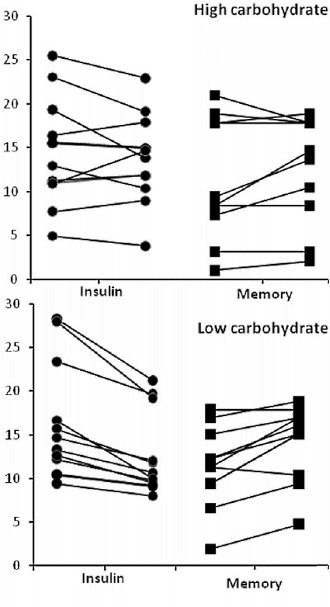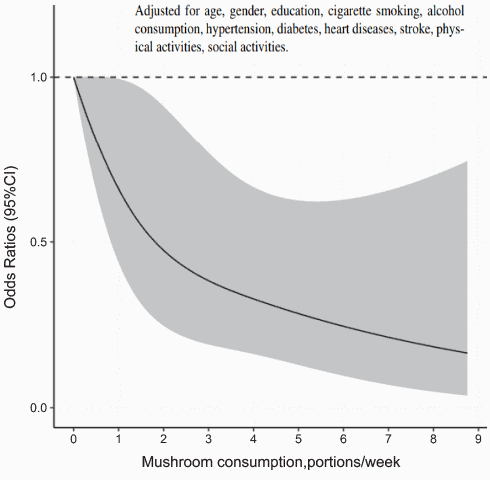|
Definition: "An ergogenic aid is any substance or phenomenon that enhances performance "
|
|
||||||||
14.11.2011 |
|
|
Less carbs, better memory
A diet from which you derive energy mainly from fats and proteins, and not from carbohydrates, improves memory function in elderly people. Neuroscientists from the University of Cincinnati write about this in an article that has been published in Neurobiology of Aging.
Dementia & diet
Researchers suspect that our industrial diet, in which a large part of the caloric intake comes from [mainly fast] carbohydrates, is one of the drivers behind the increase in the incidence of Alzheimer's and dementia.
Study
'Ketogenic' here refers to a diet which results in the release of ketones. Ketones [their basic structure is shown above] are released when the body goes over to burning fat for a longer period. Ketones are broken bits of fatty acids and the body likes using these for energy.

The test subjects tried to stick to a daily intake of 20 g carbohydrates per day. They didn't always manage, but they did pretty well.
Just before the start and just after the end of the six-week period the researchers tested their subjects' memory functions. The researchers looked at how good the elderly subjects were at remembering words [Verbal Memory] and how good they were at ordering numbers and letters [Memory].
Results
The lower the insulin level, the higher the scores. The effect was even stronger when the amount of ketones in the urine of the low-carb group was measured. "Urinary ketone bodies were not detected for the high carbohydrate subjects but were present for the low carbohydrate subjects, and ketone body levels were related to memory performance, r=0.45, p=0.04", the researchers write.
Conclusion
Source:
More: Archives:
|
|
||||||||||||||||







